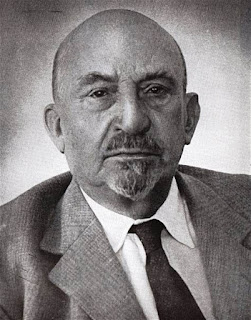Some memorable lines in the movie were claimed by others (Orson Welles, for example, and 'cuckoo clocks'). Greene simply doesn't go there. Another change is that the female lead, wonderfully played by Alida Valli, is of no real significance in the novel. I don't remember in the film anything about Martens being mistaken for a different writer by the British Council representatives in Vienna. And Greene sticks to his original choice of Rollo for Martens' first name - which Joseph Cotten apparently considered too camp, preferring Holly instead.
Greene, who loves to write in the first person, has to put himself through hoops to do so here. In the end he choose the Trevor Howard character, the British agent, who is just about able to 'discover' a lot of information through various interviews with other characters. The main virtue, though, is that Greene keeps it short. It is a novella rather than a novel, and all the better for it.
To pad it out to a publishable volume, Penguin include the original of that other classic Greene movie, The Fallen Idol, which was a short story called 'The Basement Room', written in 1935. I cannot watch the 1948 film nowadays (also directed by Carol Reed). It's a problem I developed with Ralph Richardson, who plays the servant Baines, during my PhD research. It dawned on me, listening to many archive recordings of his radio work in the British Library, that he was permanently drunk. Once you've spotted that, you can't do anything other than watch for the signs.
The short story, however, is brilliant. Greene gets wholly inside the mind of the young boy Phil, left in the care of the household servants while his parents are on holiday. Baines tries to show him a good, manly time and ends up scarring the boy's entire life.






